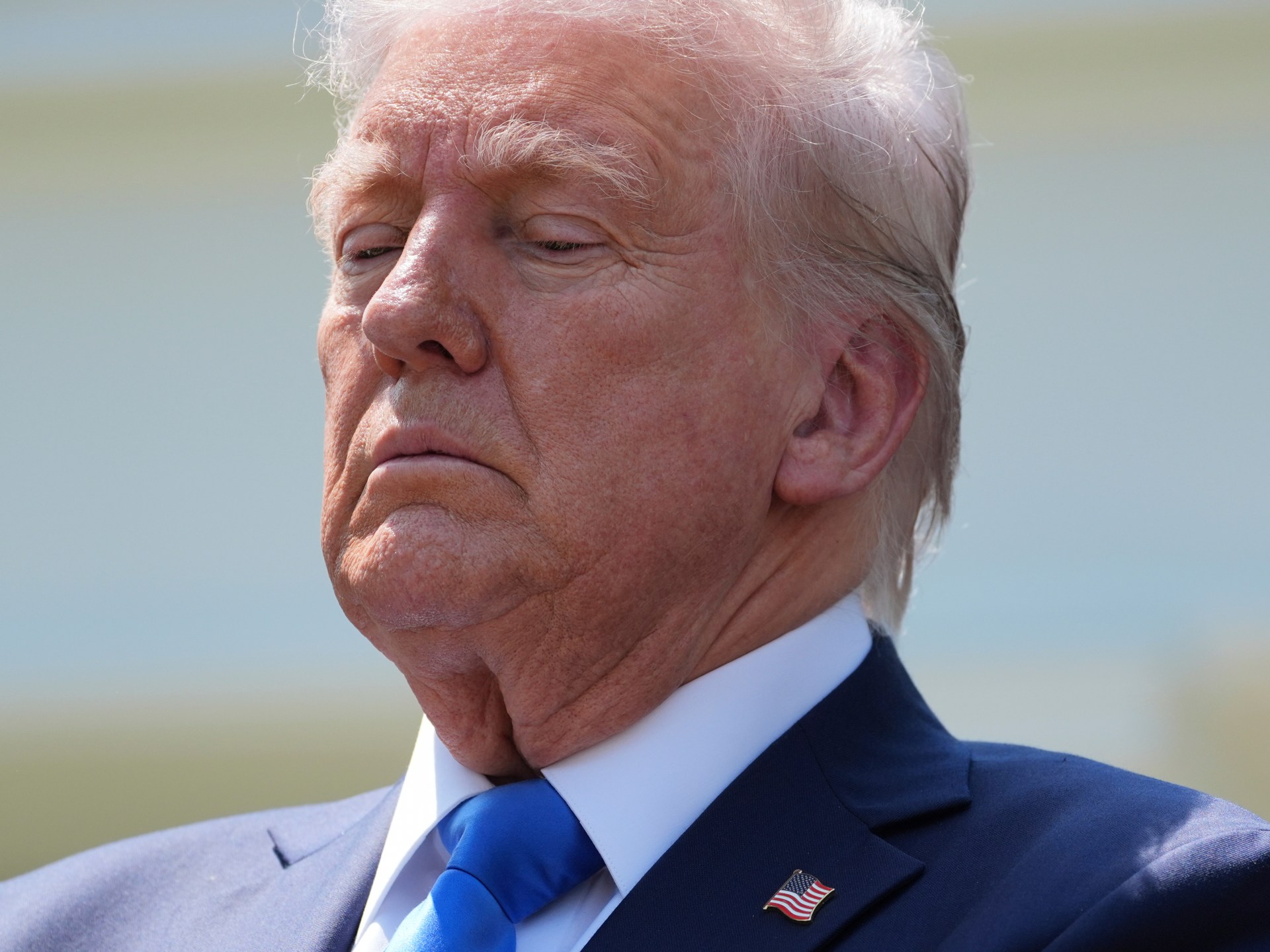A judge in the United States has quashed President Donald Trump’s administration’s ability to deport Venezuelans from South Texas in violation of the Alien Enemies Act of 1798 (AEA).
The decision on Thursday is the first of its kind, and it is likely to face a swift appeal.
As Trump seeks to remove undocumented immigrants from the country quickly, it follows similar, if temporary, orders barring the government from using the law.
Judge Fernando Rodriguez Jr., a judge in the US District Court, ruled that the Trump administration had “exceeded the statutory boundaries” of the Alien Enemies Act, a wartime law.
On March 15, Trump signed an executive order to impose sanctions on Tren de Aragua members of Venezuela. He argued that Tren de Aragua was “propagandizing an invasion of and predatory incursion into the United States,” which supported such extreme measures.
After all, only three times before, most recently during World War II, were the Alien Enemies Act invoked.
However, Judge Rodriguez acknowledged that the gang engaged in behavior that “unambiguously is harmful to society” and that the threat of Tren de Aragua fell far short of the requirements for the Alien Enemies Act.
The judge wrote, “The Court concludes that Tren de Aragua’s activities do not fall within the plain, common definition of an invasion or a predatory incursion” in the context of the AEA.”
The Court rules that the President’s proclamation of the AEA goes beyond the meaning of the statute and is thus unlawful.
Judge Rodriguez ruled that the Trump administration could not “use the law” to “detain Venezuelan aliens, transfer them within the United States, or remove them from the country because they “did not possess the lawful authority under the AEA.”
Judge Rodriguez was appointed by Trump and served in his current capacity as a Republican leader in 2018. His decision affects Houston and the Southern District of Texas.
Although it is the most significant ruling of its kind, it also joins a number of court and legal decisions that evaluate the Trump administration’s use of Alien Enemies Act.
In times of war or invasion, the US government is authorized to detain and deport citizens of allies. However, its use has been highly polarized, with some calling it constitutional.
During World War II, the Alien Enemies Act was used as justification for the imprisonment of tens of thousands of Japanese Americans and other foreign nationals in camps. After the incident, decades later, the US officially apologized and offered compensation to Japanese American survivors.
The Alien Enemies Act is alleged to have been used by Trump as the first president to do so outside of combat. He has attempted to portray undocumented immigration to the US as an unchecked “invasion” of criminals who threaten US communities with violence by using nativist rhetoric.
Since taking office for a second term, Trump has labeled criminal organizations like Tren de Aragua as international terrorist organizations, making non-citizen members unadmissible in the US.
However, the Supreme Court has ruled (PDF) that foreigners have a right to judicial review of their cases when they are removed under the Alien Enemies Act.
Lower courts have also questioned whether the Trump administration’s use of the Alien Enemies Act violated that right to free speech.
Judges in Colorado, Manhattan, and Pennsylvania have temporarily enjoined the use of the law, and Judge James Boasberg in Washington, DC, has been in charge of a well-known case in which three planes deported from El Salvador were detained under the law despite an injunction against its use.
Boasberg ruled in favor of the Trump administration’s breach of his order last month, finding it to be “probable cause.” Boasberg has continued to face allegations in that case, but Trump and his allies claim that by interfering with foreign policy, he has overstepped his legal authority.
The American Civil Liberties Union (ACLU) applauded Judge Rodriguez’s decision on Thursday after being one of the plaintiffs who have filed lawsuits against the Alien Enemies Act’s use in court.
According to a statement from ACLU lawyer Lee Gelernt, the president can’t unilaterally invade the United States and invoke a wartime authority during peacetime. This 18th-century wartime law should never be used, according to Congress.
The ACLU’s Texas branch’s legal director Adriana Pinon also hailed the decision as a victory for immigrant rights.
“This permanent injunction is a significant win for preventing unlawful, unilateral executive action that has been stoking fear in Texas, especially within border communities,” she said.
“This state and nation are a largely a part of them,” said Immigrants, who have always been that way. Both US Constitution and US laws protect them.
Senate Minority Leader Chuck Schumer also voiced his opposition, calling Trump’s use of the Alien Enemies Act unlawful.
Schumer wrote on social media that the Trump administration is “attempting to deport people without due process” and that it is “patently breaking the law.” Americans reject this, they say. They are being held accountable by the courts. We will continue to fight for our Constitution.
Source: Aljazeera

Leave a Reply